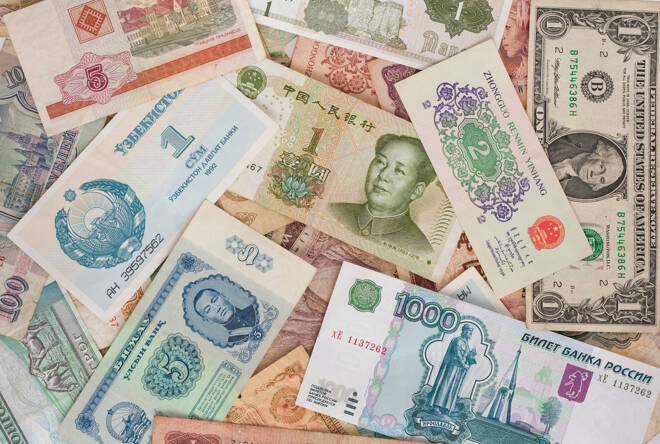Advertisement
Advertisement
How the Coronavirus Impacted the Forex Market
By:
In this article we’ll explore how the epidemic has affected the global foreign exchange market so far.
The novel coronavirus (COVID-19 ) which emerged in December 2019 has now killed more than 2,100 people and infected more than 75,000 people. In this article we’ll explore how the epidemic has affected the global foreign exchange market so far.
To understand how the news influenced the market it’s important to review the major coronavirus headlines that emerged since the beginning of the year.
January 11th: Wuhan health authorities reported the first known death caused by the virus.
January 20th: The first confirmed cases of the coronavirus outside mainland China in Japan, South Korea and Thailand are reported.
January 23rd: Wuhan is cut off by Chinese authorities as all air, road and train links out of the city are suspended.
January 26th: China’s health commission minister warns that Coronavirus’s ability to spread is getting stronger.
January 30th: The World Health Organization (WHO) declares a global health emergency, as the outbreak continues to spread outside China.
February 7th: Li Wenliang, a Chinese doctor who tried to warn others about the deadly outbreak, dies from the coronavirus.
February 9th: The death toll in China surpasses the number killed worldwide by the 2002-3 SARS epidemic.
EUR/USD
EUR/USD has taken a beating in 2020 so far. The euro has been under pressure due to disappointing economic releases, most recently the German ZEW survey which showed a decrease in investor confidence. Meanwhile, the US dollar has been boosted by its safe haven appeal amid the coronavirus epidemic. The greenback has also been underpinned by positive US economic data, increasing the odds that the Federal Reserve will keep interest rates on hold. Ongoing negative news about the coronavirus and its impact on the global economy will likely weigh on the euro.
AUD/USD
China is Australia’s largest trading partner and news relating to the Chinese economy has a major impact on the Australian dollar. Since the Chinese renminbi is restricted to trading within a designated range, investors often use the Aussie dollar as a proxy for China. More broadly, the Australian dollar is viewed as a ‘risk currency’ that investors tend to avoid in periods of instability. Further negative news about the coronavirus will likely pressure the beleaguered Australian dollar, while signs of containing it will provide support.
USD/JPY
The Japanese yen is a leading financial safe haven, in part due to Japan’s status as the world’s largest creditor nation. Other safe haven assets include the Swiss franc, the US dollar and gold. We can see the yen strengthening against the dollar during the period when the most unsettling coronavirus headlines were being published. However, the dollar has since rebounded to make fresh highs against the yen, undermining the yen’s safe haven status. Investors have preferred gold over the yen as a safe haven due to Japan’s proximity to and dependence on China. Gold prices rallied this week to their highest levels since 2013. Elsewhere, Bitcoin rebounded sharply while the coronavirus spread and the case is building for it to be viewed as a legitimate safe haven asset alongside gold.
USD/CAD
The risk sensitive Canadian dollar weakened as fears mounted over the coronavirus and crude oil prices fell. However, oil prices rose last week as a slowdown in new coronavirus cases began to ease fears over its global economic impact and the Canadian dollar in turn received a boost from the uptick. The Loonie has a positive correlation with crude oil because Canada is one of the largest oil producing countries in the world.
The Bottom Line
A Reuters poll of economists predicted that China’s annual economic growth in the first quarter of 2020 will slow to 4.5% from 6.0% in the previous quarter, illustrating the drastic toll of the coronavirus. The knock-on effect globally was starkly visible earlier this week as Apple’s (AAPL) stock price fell sharply after cutting its quarterly revenue forecast due to the outbreak. Recent reports that the number of confirmed new cases in China appear to be slowing has inspired some optimism in the markets. However, experts have also warned that the crisis may have not yet reached its peak.
By Dan Blystone, Scandinavian Capital Markets
About the Author
Dan BlystoneBroker Analyst
Starting his career in finance on the floor of the Chicago Mercantile Exchange, Dan later gained insight into the forex industry during his time as a Series 3 licenced futures and forex broker. Dan also traded at a couple of different prop trading firms in Chicago.
Advertisement
